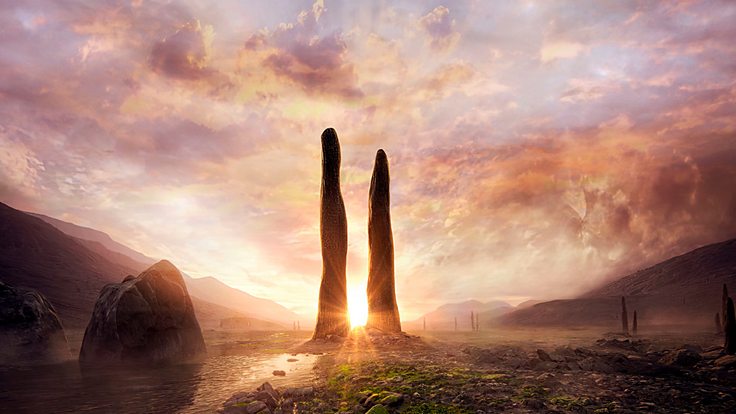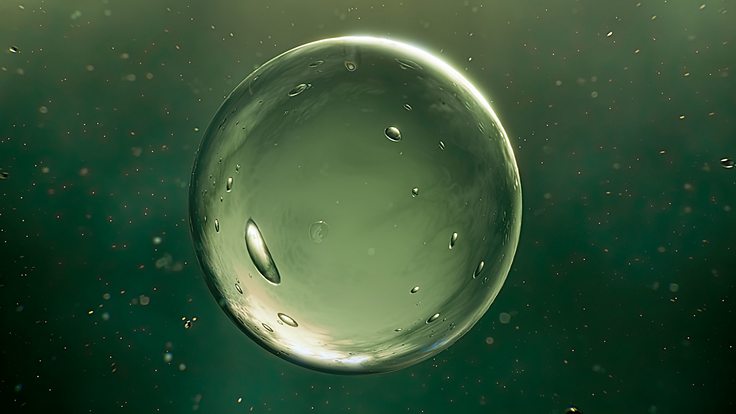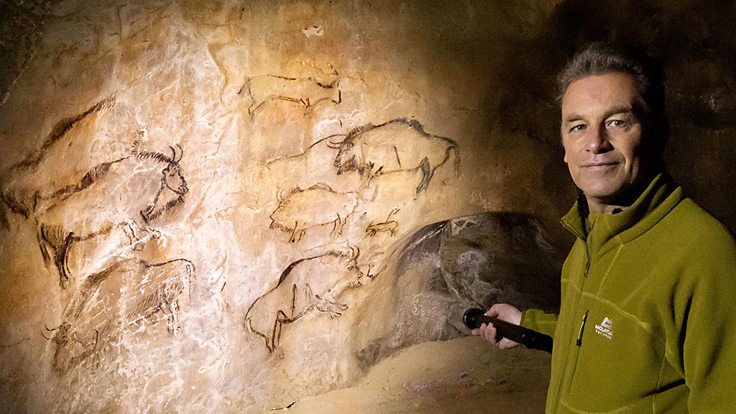Earth: One Planet, Many Lives • 2023 • 5 episodes • 4h:51m
his ground-breaking 5 x 60 series for BBC Two and iPlayer tells the astonishing four and a half billion-year story of the planet we call home: Earth. Chris Packham uses the latest science to take viewers on a journey through Earth’s most epic moments - a jaw-dropping catalogue of dramatic upheaval from the first seconds of the planet’s existence to the arrival of its most impactful inhabitants, us. From massive asteroid bombardments to extreme changes in climate and collisions of whole continents, immersive cutting-edge CGI allows us to witness the critical moments when Earth’s future, and the life it nurtured, hung in the balance. Each episode tells the story of a pivotal epoch as evolving landscapes and ecosystems faced seemingly insurmountable challenges and breath-taking transitions, including the formation of our life-sustaining atmosphere, the era of lava lakes the size of Australia, and the catastrophic freezing of the entire planet. This awe-inspiring story can only now be told in such detail thanks to the amazing work of scientists across the world. Our team consulted with over two hundred leading palaeontologists, geologists, climatologists and other specialists, as well scouring thousands of peer-reviewed scientific journals to recreate the landscape and life that existed millions and even billions of years ago. Combined with Chris’s deep knowledge of our contemporary natural world, this epic story illuminates just how special our planet is and shines a new light on the challenges we face today.
In Inferno, Chris Packham explores one of the darkest periods in Earth’s history: the worst mass extinction the planet has ever seen, when as much as 90% of all species died, 252 million years ago. This extraordinary moment in Earth’s history took life to the brink, wreaking havoc and destruction on an unprecedented scale. But somehow, life found a way to bounce back, and a new geological era ushered in the age of the dinosaurs. The story begins with a massive volcanic eruption: the Siberian Traps eruption lasted for two million years and created enough lava field to cover an area the size of Australia. Life in the immediate vicinity was no doubt vaporized, but the fossil record reveals a bigger mystery – a strange ‘line of death’ in rock formations all over the world that indicates almost all life dying out, no matter how close it was to the lava field. Chris uncovers what the latest science reveals about the aftermath of the eruption, and the terrifying series of events that led to the global mass dying. It’s a stark cautionary tale of how rapid climate change can cause whole ecosystems to collapse, but the fossil record also hints at Earth’s miraculous powers of reinvention. Chris discovers clues in rocky mountain ranges to one of greatest deluges in the planet’s history – a downpour lasting on and off for almost two million years that transformed conditions and led life to bounce back in extraordinary style, with the rise and eventual domination of the dinosaurs.
S1E1 • 2023 • Nature
In Snowball, Chris Packham tells the story of the astonishing moment in Earth’s distant past, when almost the entire planet froze – a glistening ‘Snowball Earth’ in the dark void of space. With ice wrapped around the planet to the equator, the chances of life surviving hang in the balance. Earth’s terrifying journey into the deep freeze started with fire, not ice. 800 million years ago, long before the age of the dinosaurs, before there was even animal life, the giant supercontinent Rodinia broke up. Earth’s vast powerful tectonic forces ripped the land apart, kicking off a series of events that resulted in huge amounts of carbon dioxide being sucked from the atmosphere and sending global temperatures plummeting. This plunge into the deep freeze couldn’t have come at a worse time. The very first forms of complex life - the ancestors to the amazing life we see around us today - were evolving but, as the planet froze to the equator, it looked like their days were numbered. Happily, Chris discovers that after 50 million years locked in ice, volcanic eruptions drove a great thaw. Life broke free from the ice and soon made a giant leap, from the microscopic, to the first animals big enough to see and touch.
S1E2 • 2023 • Nature
In this episode, Chris Packham tells the miraculous story of how plant life turned Earth from a barren rock into a vibrant green world. A four billion year saga of extraordinary highs and lows that almost wiped out all life on the planet. Four billion years ago Earth was predominantly a water world, lacking land masses, with plant life’s early ancestors trapped on the seabed. Everything changed when a giant asteroid bombardment smashed into the young planet’s crust triggering plate tectonics - Earth’s extraordinary land building force. As opportunities on land grew, plants faced an epic struggle to establish themselves in a world dominated by giant eight metre fungi, overcoming death and dehydration and eventually creating the life-giving substance that would allow them to prosper: soil. But just as they seemed set to triumph, evolving into the amazing biological machines that are trees, they became the victims of their own success. Giant swamp forests sprang up, locking up so much carbon dioxide, that global temperatures plummeted sending Earth into one of its most terrifying chapters yet.
S1E3 • 2023 • Nature
In this episode, Chris Packham tells the almost implausible story of how our world went from a barren rock with a sky of endless black, to the planet we know today, cloaked in the thin blue line of our life-sustaining atmosphere. When Earth first formed from clouds of dust and gas 4.6 billion years ago, it was - like so many other lifeless worlds in the universe - devoid of an atmosphere, an inhospitable rock floating in the black void of space. But as the young planet was pummelled by asteroids a period of extraordinary upheaval began. Over a two-billion-year period, the planet faced violent eruptions and a toxic orange haze, vast oceans of water in the sky and seas turning rusty red. Eventually, with the emergence of life and photosynthesis recalibrating the gases in our atmosphere, the stage was set for Earth to become the vibrant azure-skied planet we call home today.
S1E4 • 2023 • Nature
Today Earth is a human world, home to eight billion people and counting. Humans now have a greater effect in shaping Earth’s surface than many natural processes. In this episode, Chris Packham explores how dramatic twists in Earth’s story enabled humans to go from being part of nature to controlling it, and what we can learn from this epic tale before it’s too late. The story begins 66 million years ago with the catastrophic impact of the asteroid that wiped out the (Non-avian) dinosaurs. From the ashes of the desolation that followed, a new animal family rose to power. This was adaptable and inventive enough to emerge out of the harsh new world – the mammals. It began with a distant ancestor that shared many traits of the much maligned, but evolutionarily brilliant, rat. Due to a series of extreme geological and climatic events, mammals evolved into early primates feasting in the newly formed tropical rainforests, and then to early humans travelling vast distances between forests in places like East Africa’s Rift Valley. Earth’s story is a saga spanning 4.5 billion years, but it’s only in the last 11,000 years - with the rise of farming - that our species has started to dramatically impact our planet and its ecosystems. The human chapter of Earth’s story might end in disaster, but Chris is keen to argue for a different ending, where all of humanity’s achievements to date “…were just our dress rehearsals, because in the very near future our species will need to reach the zenith of its achievements and… all humanity will have to learn to put our Earth first.”
S1E5 • 2023 • Nature




